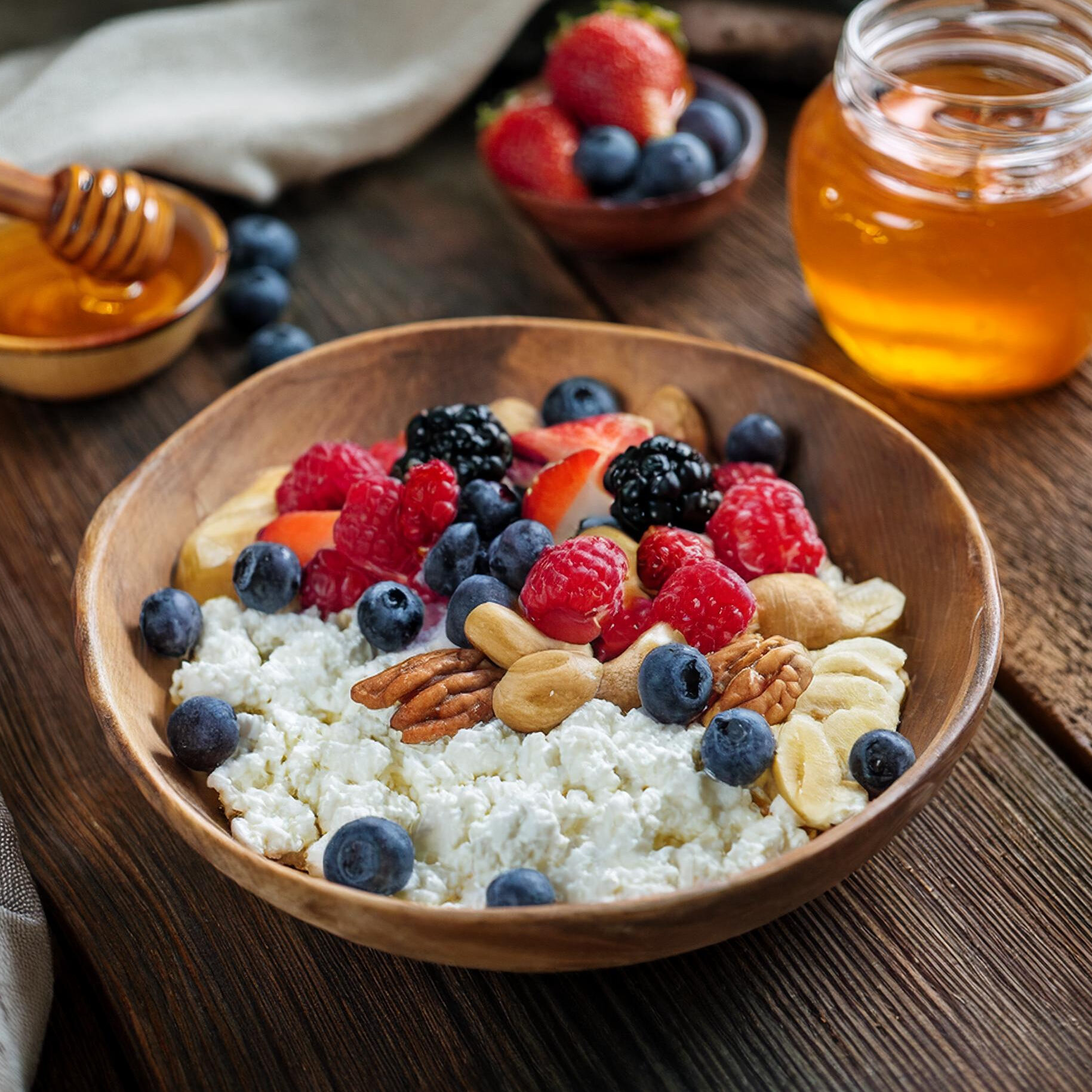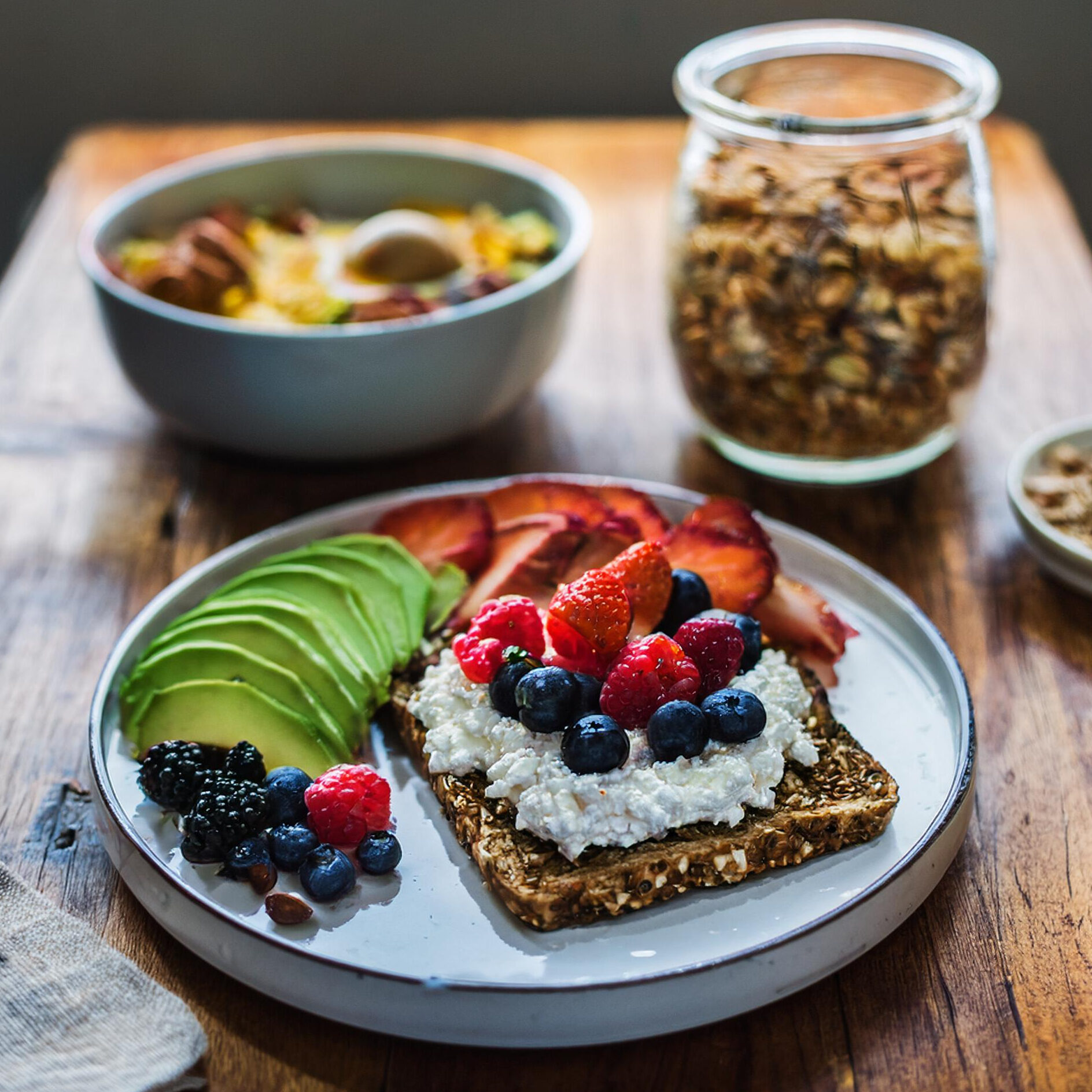Cottage cheese is a highly nutritious and versatile food, but have you ever wondered how many times a week you should eat cottage cheese? Whether you’re incorporating it into a weight-loss plan, muscle-building routine, or just trying to enjoy balanced meals, this article explores the ideal frequency, health benefits, and creative ways to include it in your diet.
Nutritional Benefits of Cottage Cheese
Cottage cheese is packed with nutrients that make it a healthy and satisfying addition to your diet. Here’s a closer look at what makes it so beneficial:

1. High-Protein Content for Muscle Growth
Cottage cheese is an excellent source of protein, which plays a key role in muscle repair and growth.
| Nutrient | Amount per 100g |
|---|---|
| Protein | 11-14g |
| Calories | 98-120 kcal |
| Carbohydrates | 3-4g |
| Fat | 4-6g |
- Why It’s Important: The protein in cottage cheese contains casein, a slow-digesting protein that helps maintain muscle synthesis over a longer period.
- Who Benefits Most: Athletes and people on high-protein diets can particularly benefit from adding cottage cheese post-workout or as a nighttime snack.
2. Packed with Calcium for Bone Health
Cottage cheese is rich in calcium, which is essential for strong bones and teeth.
| Nutrient | Amount per 100g |
|---|---|
| Calcium | 83-100mg |
| Phosphorus | 105-125mg |
- Bone Support: The combination of calcium and phosphorus promotes bone density and reduces the risk of osteoporosis.
- Daily Intake: A single serving (approximately 100g) contributes about 10% of your recommended daily calcium intake.
3. Low in Calories, High in Satiety
For those managing their weight, cottage cheese offers a filling yet low-calorie option:
- Calories Per Serving: Depending on the variety (full-fat, low-fat, or fat-free), a standard serving provides between 100 and 120 calories.
- Satiety Factor: The protein and fat in cottage cheese help curb hunger, making it an excellent choice for portion-controlled diets.
For more detailed insights on its role in a balanced diet, explore these healthy cottage cheese recipes.
For a deeper dive into the nutritional profile of cottage cheese and other dairy options, visit this comprehensive guide.
Factors That Influence How Often You Should Eat Cottage Cheese
How often you should eat cottage cheese depends on several factors, including your dietary needs, lifestyle, and health goals. While some people can enjoy it daily, others may find a few times a week sufficient. Here’s a breakdown of key considerations:
1. Daily Calorie and Protein Requirements
Cottage cheese is a nutrient-dense food, making it ideal for meeting your daily calorie and protein needs.
| Factor | Cottage Cheese Contribution |
|---|---|
| Calorie Management | A 100g serving adds only ~100-120 kcal, making it easy to fit into most diets. |
| Protein Intake | Provides ~14g protein, contributing significantly to daily protein goals. |
- Active Individuals: If you’re highly active or involved in strength training, you can include cottage cheese daily for muscle recovery and sustained energy.
- Weight Watchers: For weight loss, it can be consumed 3-4 times a week as a low-calorie, high-protein snack.
2. Lactose Sensitivity and Tolerance
Cottage cheese contains lactose, which can be problematic for individuals with lactose intolerance.
- Low-Lactose Options: Some brands offer lactose-free cottage cheese, which can be consumed more frequently without discomfort.
- Portion Awareness: Even those with mild lactose intolerance may tolerate small portions 1-2 times a week.
3. Weight Loss or Weight Gain Goals
Your health objectives can influence how often you should eat cottage cheese:
- For Weight Loss: Include cottage cheese 3-4 times a week as a snack or meal component to stay full while managing calories.
- For Weight Gain: Increase frequency to 5-7 times a week and pair it with calorie-dense foods like nuts, dried fruits, or olive oil.
Quick Tip for Portion Control
| Goal | Recommended Frequency |
|---|---|
| Weight Loss | 3-4 times a week |
| Muscle Gain | 5-7 times a week |
| General Maintenance | 2-3 times a week |
For more inspiration on incorporating cottage cheese into your routine, explore these delicious recipe ideas.
Recommended Serving Size of Cottage Cheese
While cottage cheese is undeniably nutritious, portion control plays an essential role in reaping its benefits without overindulging. Understanding the ideal serving size can help you enjoy it in moderation, whether you eat it daily or occasionally.
1. Standard Serving Size
A standard serving size of cottage cheese is approximately 100 grams (or about half a cup). Here’s what you get in one serving:
| Nutrient | Amount per 100g Serving |
|---|---|
| Calories | 100-120 kcal |
| Protein | 11-14g |
| Fat | 4-6g |
| Carbohydrates | 3-4g |
| Calcium | 83-100mg |
- Who Benefits Most: This portion size is ideal for most individuals, providing sufficient protein and nutrients without excessive calories.
- For Larger Appetites: Athletes or individuals looking to gain weight can double the serving to meet higher energy and protein requirements.
2. Is Eating Cottage Cheese Every Day Healthy?
Daily consumption of cottage cheese is generally safe for most people. However, moderation is key to prevent potential downsides:
- Sodium Content: Some varieties of cottage cheese contain up to 400-800mg of sodium per serving, which could contribute to high sodium intake if consumed excessively. Opt for low-sodium versions to enjoy it more often.
- Lactose Sensitivity: Eating cottage cheese every day may be unsuitable for individuals with lactose intolerance unless it’s a lactose-free variety.
3. Adjusting Servings Based on Goals
Depending on your dietary goals, here’s how to adjust your servings:
| Goal | Serving Size | Frequency |
|---|---|---|
| Weight Loss | 100g (half a cup) | 3-4 times a week |
| Muscle Gain | 150-200g (¾ to 1 cup) | 5-7 times a week |
| General Maintenance | 100g (half a cup) | 2-3 times a week |
For more on portion control and maximizing health benefits, explore this healthy eating guide.
Best Times to Eat Cottage Cheese in a Week
Cottage cheese is versatile enough to fit into any meal or snack, but there are specific times when its nutritional profile shines. Whether you’re starting your day, recovering from a workout, or craving a bedtime snack, cottage cheese can provide the perfect boost.

1. Cottage Cheese for Breakfast
Starting your day with cottage cheese is an excellent way to fuel your morning.
- Why It Works: Cottage cheese is high in protein, keeping you full and energized until your next meal.
- Breakfast Ideas:
- Cottage Cheese Toast: Spread it on whole-grain toast and top with avocado or fresh fruit.
- Parfaits: Layer it with granola and berries for a quick, balanced breakfast.
| Nutrient Benefits | Impact on Breakfast |
|---|---|
| Protein | Boosts energy and curbs hunger |
| Calcium | Strengthens bones and teeth |
For a full breakfast guide, check out these healthy morning recipes.
2. Post-Workout Snack
Cottage cheese is an ideal post-workout snack for muscle recovery.
- Why It’s Effective: The casein protein in cottage cheese digests slowly, providing sustained muscle repair after exercise.
- Snack Pairings:
- Add a handful of nuts for healthy fats.
- Mix in diced pineapple for a tropical twist and added carbohydrates.
| Nutrient | How It Helps After Exercise |
|---|---|
| Protein | Repairs and builds muscle fibers |
| Carbs (add-ons) | Restores energy after a workout |
3. Late-Night Snack Option
Cottage cheese is also a fantastic choice for a pre-bedtime snack.
- Why It’s Great: Casein protein provides a slow, steady release of amino acids, supporting muscle maintenance overnight.
- Serving Suggestion:
- Pair it with cinnamon and a touch of honey for a sweet treat.
- Add cucumber slices and a sprinkle of dill for a savory option.
| Benefit | Why It’s Ideal Before Bed |
|---|---|
| Low Calories | Avoids heavy meals late at night |
| Sustained Protein Release | Supports muscle repair while sleeping |
For more creative nighttime snack ideas, explore these healthy recipes.
Creative Ways to Incorporate Cottage Cheese
Cottage cheese’s mild flavor and creamy texture make it a versatile ingredient for both sweet and savory recipes. Here are some innovative and delicious ways to enjoy it throughout the week.
1. Sweet and Savory Mix-Ins
Mixing cottage cheese with complementary ingredients is one of the easiest ways to elevate its flavor.
- Sweet Pairings:
- Fruits: Combine with fresh berries, diced mango, or banana slices.
- Natural Sweeteners: Add a drizzle of honey, maple syrup, or a sprinkle of cinnamon.
- Savory Pairings:
- Vegetables: Stir in diced cucumber, cherry tomatoes, or shredded carrots.
- Herbs and Spices: Mix with dill, paprika, or chives for a flavorful snack.
Pro Tip: For more mix-in inspiration, check out this guide to cottage cheese pairings.
2. Recipes for Balanced Meals
Cottage cheese can serve as the star ingredient in a variety of balanced dishes:
| Dish | Ingredients | Why It Works |
|---|---|---|
| Cottage Cheese Bowl | Quinoa, spinach, grilled chicken, and cottage cheese | A high-protein, nutrient-packed meal |
| Stuffed Bell Peppers | Cottage cheese, brown rice, diced vegetables | A hearty and wholesome dinner option |
| Pancake Topping | Cottage cheese, fresh fruit, and a sprinkle of nuts | Adds protein and creaminess to your pancakes |
3. Blend It into Smoothies or Dips
Blending cottage cheese creates a smooth, creamy base for various dishes:
- Smoothies: Combine cottage cheese with frozen berries, almond milk, and a banana for a protein-rich drink.
- Dips: Blend with garlic, olive oil, and herbs for a savory dip to pair with crackers or raw veggies.
For more creative uses, explore these nutritious recipe ideas.
Frequently Asked Questions (FAQs)
Here are answers to some common questions about how often you should eat cottage cheese and how to incorporate it into your diet.
1. Can I Eat Cottage Cheese Every Day?
Yes, it’s safe to eat cottage cheese daily for most people, as long as you balance it with other foods. However:
Opt for low-sodium varieties to avoid excessive salt intake.
Those with lactose intolerance may need to limit their intake or choose lactose-free options.
2. How Much Cottage Cheese Should I Eat in One Day?
A standard serving size is about 100 grams (half a cup), which provides around 100-120 calories and 14 grams of protein.
For weight loss: Stick to 1-2 servings per day.
For muscle gain: You can increase to 2-3 servings, depending on your protein needs.
3. Is Cottage Cheese Better in the Morning or Evening?
Cottage cheese works well at both times:
Morning: Provides long-lasting energy and curbs hunger.
Evening: Casein protein supports muscle repair while you sleep, making it an excellent nighttime snack.
4. Can I Use Cottage Cheese in Cooking?
Absolutely! Cottage cheese is a versatile ingredient in various recipes:
Use it as a substitute for cream cheese or ricotta in lasagnas, pancakes, or dips.
Blend it into smoothies or use it as a topping for baked dishes.
For ideas, check out this comprehensive recipe guide.
5. What Are the Downsides of Eating Too Much Cottage Cheese?
While cottage cheese is healthy, overconsumption may lead to:
Excess Sodium Intake: Depending on the variety, some brands can have high sodium levels.
Digestive Issues: Those sensitive to lactose may experience bloating or discomfort.
Conclusion: Striking the Right Balance
Cottage cheese is a powerhouse of nutrition, offering high protein, essential nutrients like calcium, and versatility that makes it suitable for various meals. How often you should eat it depends on your dietary goals, health needs, and preferences.
For most people, consuming cottage cheese 2-4 times a week as part of a balanced diet provides its health benefits without overdoing it. Those aiming for muscle gain or higher protein intake can safely enjoy it daily, provided they choose low-sodium options and balance it with other nutrient sources.
Whether it’s a morning boost, a post-workout snack, or a late-night treat, cottage cheese fits seamlessly into a healthy lifestyle. Experiment with creative recipes, mix-ins, and meal ideas to keep your diet varied and enjoyable.
For more tips and recipes, explore this comprehensive guide to cottage cheese dishes.

1 thought on “How Many Times a Week Should You Eat Cottage Cheese?”